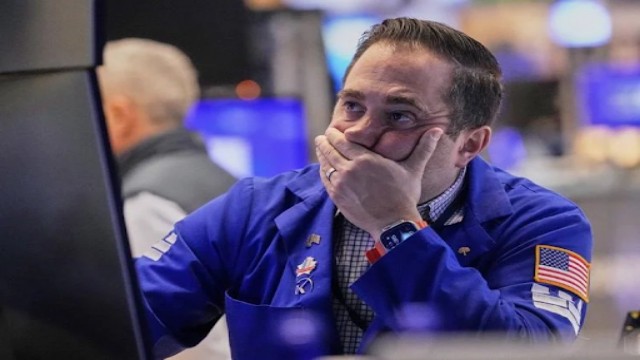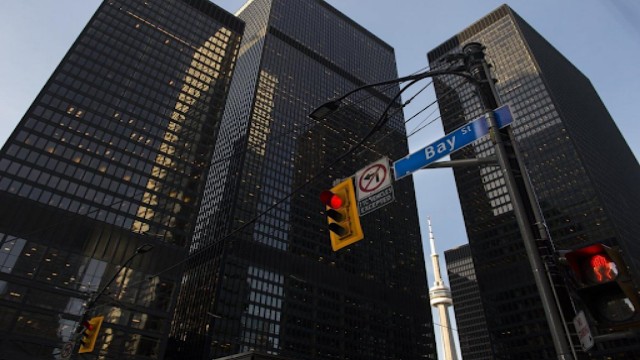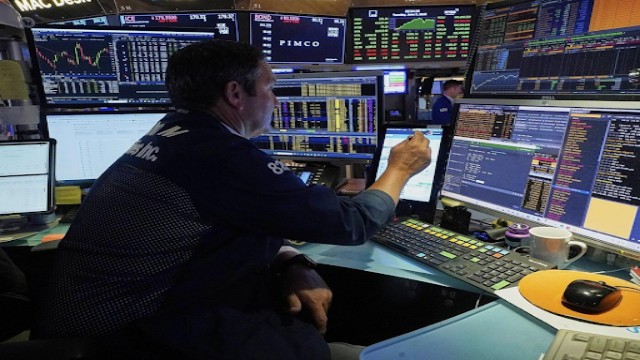
Vincent Napolitano, a trader, is seen at work on the floor of the New York Stock Exchange on Wednesday, April 16, 2025. Richard Drew took the photo for the Associated Press.
U.S. stock markets faced a steep drop on Wednesday after Nvidia revealed a major blow to its business due to new export limits to China. This, combined with global concerns over ongoing trade tensions, caused uncertainty for companies and investors alike.
The S&P 500 slipped 2.2%, coming close to one of its worst days in recent years. Earlier in the day, it had dropped as much as 3.3%. The Dow Jones Industrial Average fell 699 points, a 1.7% loss, while the tech-heavy Nasdaq suffered the most, sinking 3.1%.
The trigger behind the turmoil came from Nvidia’s announcement that U.S. restrictions on selling certain chips to China could lead to a $5.5 billion financial hit in the first quarter. The export ban targets Nvidia’s H20 chips, with officials expressing concern over their potential use in supercomputers. This news dragged Nvidia shares down 6.9%.
Other chipmakers were also affected. Advanced Micro Devices (AMD) slid 7.3% after saying it may take an $800 million hit due to similar restrictions. ASML, a chip equipment maker in the Netherlands, lost 5.2% despite reporting steady demand for AI chips. The company’s CEO noted that trade policy changes are creating a shaky outlook.
Federal Reserve Chair Jerome Powell added fuel to the fire, acknowledging that tariffs imposed by the Trump administration may have a more serious impact than expected. While Powell stressed the Fed isn’t yet ready to adjust interest rates, he admitted that it’s tough to measure the full economic fallout from the trade conflict.
“This is all very uncertain,” Powell said, adding that the Fed needs to see clearer policies before making any decisions on rate changes.
Some businesses are already trying to adjust. United Airlines presented two separate forecasts for 2025: one assuming a recession, and another without one. The airline’s leadership said the unpredictability caused by trade tensions forced them to prepare for multiple scenarios.
Investors are growing increasingly anxious that the trade war could tip the economy into recession. A recent Bank of America survey found that global fund managers are the most worried about a downturn since 2008. The World Trade Organization echoed these concerns, estimating that tariffs could reduce global trade by 0.2% this year—or by as much as 1.5% if things get worse.
Even companies that posted decent earnings weren’t spared. J.B. Hunt Transport Services, which moves goods across North America, dropped 7.7% despite reporting better-than-expected profits.
Meanwhile, Treasury yields dipped. The 10-year U.S. Treasury yield fell to 4.28%, down from 4.35% the day before. Lower yields typically signal investors are seeking safer ground—another sign of growing fear on Wall Street.
Markets abroad mirrored the U.S. slump. Stocks dropped across Asia, with Hong Kong down 1.9%, Tokyo 1%, and Seoul 1.2%. In Europe, results were mixed: Paris edged down slightly, while London’s FTSE 100 rose 0.3%, thanks in part to a drop in U.K. inflation.















